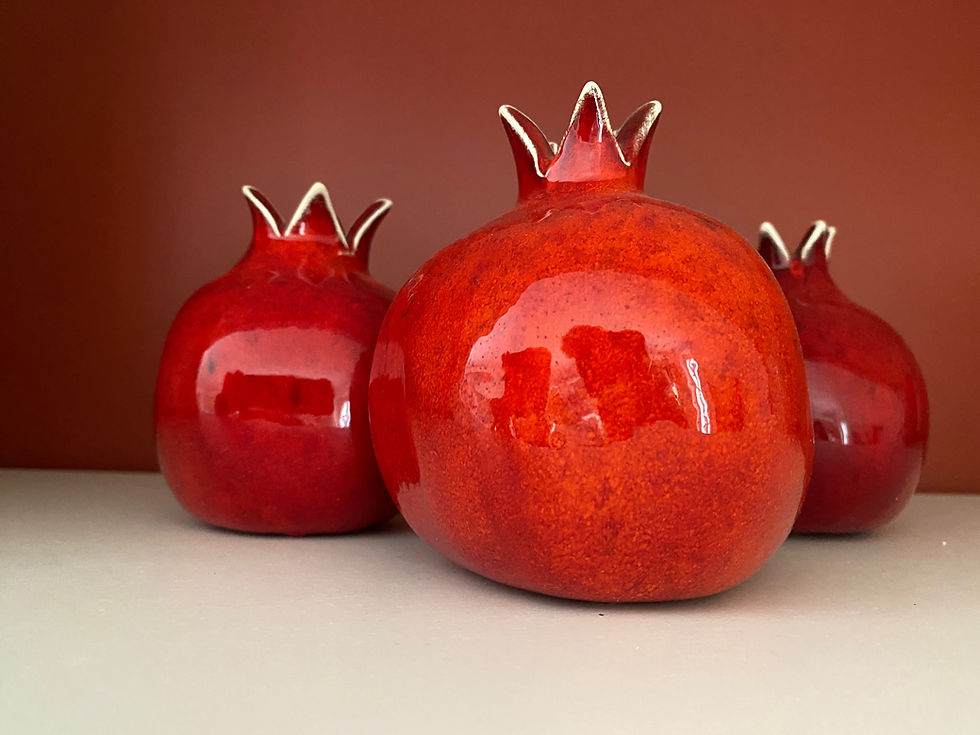Mary & Epiphany
- The Rev. Julia Matallana Freedman

- Jan 12, 2024
- 4 min read

Dear friends,
Epiphany is a season of recalling God manifesting as the Baby Jesus and revealing himself to the world. I can think of nothing more incarnational in the year of 2023 than the "Barbie" film. I know those two sentences may not seem connected immediately, but hear me out.
In seminary, I took a course on Midrash. Midrash has many definitions and is used especially in Jewish circles. It is a massive body of work and a robust field of study–probably one of the most difficult courses I took! Just for a bit more context, it was taught in conjunction with Dr. Ellen Davis, a Christian Hebrew scholar–who reads and translates ancient Hebrew just as quickly as she can speak English–a Jewish Rabbi from Duke’s Religion department, and a guest lecturer from Hebrew University (if my memory serves correctly, it was nearly 8 years ago now). The definition we worked with was the idea that stories have been passed down surrounding the ancient scriptures. While Midrash isn’t considered canonical, in our terms, it can offer something important such as a commentary, a speculation, a deeper question, or perhaps even more accurately a conversation about these stories. The metaphor that was shared with us is that Midrash has the freedom to operate within the cracks of the Biblical narrative. The gaps of time we don’t see, the questions left unanswered, the mysterious characters on the periphery. This past week during our Youth Confirmation class Rev. CJ brought up the idea that "Barbie" can be taken as a contemporary “Midrash” when we look at it in a particular way–It's not canonical, it's not Holy Scripture but it offers us a conversation about the Holy Scriptures.
As some of you may recall from my Advent 4 sermon, Mary is an exceptional figure, foundational to our theology. In a way, I see her as pointing us toward the humanity of Christ in countless instances. But what I preached is speculation, it furthers our questions and brings in a central piece of art from our time–in a sort of Midrash style.
Friends, a woman got this faith thing right, and there is power in her story. Even the patriarchy makes her out to be nothing short of a saint, Holy in her own right, which holds true for us theologically. In the Immaculate Conception, Mary consents and makes a free choice to choose God. She responds with, “I am the Lord’s servant,” “May your word to me be fulfilled.”
This year many of us saw an outstanding film, and that film was called, "Barbie." I couldn’t stop thinking about this film while reflecting on the incarnation. It’s a satirical film in which Barbie, the doll, played by Margot Robie, has reason to travel from Barbie Land to The REAL WORLD—our world. She comes to find out that it isn’t a liberated world where women can do anything, like Barbie Land; but quite the opposite –including verbal assaults, sexualization, attempts to rebox her literally, and many tears.
In my opinion, the most moving part of the "Barbie" film is the final conversation between the creator of Barbie, her name is Ruth, and Barbie, herself. It’s the point in the film where we as viewers don’t yet know what Barbie’s ending will be, will she end up marrying Ken? Will she get a high-powered job? What is it that she really wants? It's a moment where all the angst of being a woman in the Real World comes to a final climax, and the final climax is about being human, about becoming human. In fact, Barbie says, “I want to be the one who helps make meaning, not be the idea, you know what I mean? I want to do the imagining, I don’t want to be the idea.” Friends, I think every young woman comes to a point in their life when she realizes that she wants to do the imagining instead of simply being the idea. She comes to a point where she wants a seat at the table and for her voice to be heard. And while every woman’s experience of that time in her life is different I’m optimistic that many of us here can relate to this journey of coming into ourselves.
Eventually, Barbie asks the creator of the doll, Ruth, if she has her permission to become human. And the response is compelling, “You don’t need my or anyone's permission!” Barbie responds with, “So human is just something I am, it's not something I need to ask for or even want? It's just something I discover I am?”
I think the whole crux of the film hangs on this exchange. That being a woman, or a man, or non-binary, it doesn’t really matter, what we all want is to be fully human. For the world around us to know that we are human, and treat us as fellow humans on this journey of life. And being human is messy and difficult and sometimes we dehumanize ourselves and each other– we make up things like patriarchy and gender constructions and satire comedy just to deal with how uncomfortable being a human really is. And yet, we are still just people. Barbie chooses to become human even though she knows the pain, suffering, and eventual death it would include so at its very core it’s an incarnational story. In the same way, Christ chooses to take on all that makes us human, pain, suffering, and eventual death. And what Christ offers is the fact that we are enough, just as we are, pain, suffering, and inevitable death included.
Blessings,
Rev. Julia+








Comments